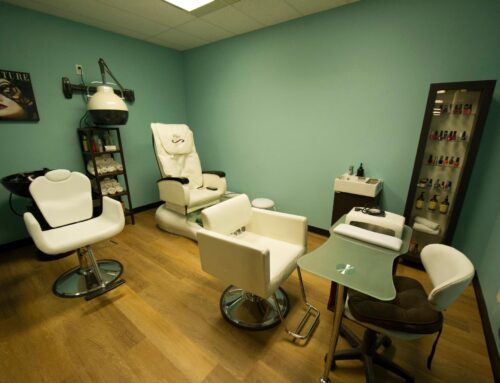Music therapy for those living with dementia is a staple treatment in many Memory Care environments. It involves using music to address the physical, emotional, cognitive, and social needs of individuals. Throughout the various stages of dementia, music has been shown to support the physical, mental, and emotional well-being of people.
Music therapy can be particularly effective in the early stages of dementia. By engaging in musical activities, people living with Memory Loss can maintain their cognitive functions longer and enjoy a better quality of life.
This post will guide you through the process of integrating music therapy into Memory Care, emphasizing its effectiveness in the early stages of dementia.
Understanding Early Dementia
Dementia is a broad term for a decline in mental ability severe enough to interfere with daily life. It affects memory, thinking, language, judgment, and behaviour, although symptoms vary from person to person and from stage to stage. Alzheimer’s disease is the most common form of dementia, accounting for 60% to 80% of cases. Other known forms include vascular dementia, Lewy body dementia, and frontotemporal dementia.
Early symptoms of dementia include memory lapses, difficulty performing familiar tasks, confusion with time or place, and mood changes. Other common signs of early dementia include misplacing items, repetitive questions/stories, difficulty in problem-solving, poor judgement, and difficulty forming proper sentences or finding the right words. These challenges can be frustrating for both the individual and their loved ones, leading to emotional distress and a sense of helplessness.
Dementia takes a toll not just on the individual but also on their care partner(s) and family members. The progression of symptoms can lead to feelings of grief, loss, and anxiety. Understanding these emotional challenges is crucial for providing compassionate and effective care.
The Power of Music and the Brain
For years, researchers have been studying the link between music and the brain functions that are responsible for language, understanding, movement, and mood. One University of California study discovered that the medial prefrontal cortex (MPFC), the area of the brain where memories are stored, can be stimulated by triggered by familiar songs from a person’s past.
Upon hearing music, the brain releases dopamine, a “feel-good” hormone that stabilizes a person’s mood. Anxiety, depression, and fear can be reduced, improving a person’s mood and overall emotional state.
In addition, the neurotransmitters released when music is heard can recall emotions that were once experienced when the memory was created. Even when other memories fade, individuals living with Memory Loss often recall songs and melodies from their past, due to the strong emotional connections formed with music.
Listening to or creating music can lead to a significant improvement in mental agility and cognitive functions. This can help with verbal and non-verbal expressions of emotions, needs, thoughts, and ideas.
How Music Therapy Works for Early Dementia
Music therapy is considered a non-pharmaceutical treatment. It can be used alone or in conjunction with other therapies such as pet therapy or art therapy.
Music therapy aims to improve memory and cognitive function by signaling recollection of faces, times, places, and events in the past. It can reduce anxiety and depression, which helps to regulate the immune system and reduce the rate of neurodegeneration. Music also enhances communication, social interaction, relaxation, and overall well-being.
Different techniques are used in music therapy, each tailored to meet the needs of individuals living with dementia.
- Listening therapy uses familiar music to evoke memories and emotions
- Instrument and singing therapy encourages expression and vocalization in those who have lost the ability to verbally voice their thoughts and feelings.
- Movement therapy promotes coordination with physical movement through exercise and dance.
Music therapists personalize sessions based on the individual’s preferences and abilities. This tailored approach ensures that the therapy is engaging and effective, addressing the specific needs of each person.
Getting Started with Music Therapy
Music therapy can be done anywhere, at any time. It is important to consult with a qualified music therapist who specializes in dementia care.
Home-based therapy is also available for those who receive Memory Care by care partners. Home-based sessions offer flexibility and comfort, allowing the therapy to be integrated into the individual’s daily routine. Using pre-recorded music, real or home-created instruments, and impromptu singing can be beneficial.
Incorporating music into daily life at home can be simple and enjoyable. For effective music therapy, it is important to choose music that the person living with Memory Loss is familiar with. Look for music with no interruptions such as commercials or announcements to prevent confusion. Create playlists of familiar favourites, sing together, or play musical instruments. These activities can provide a sense of normalcy and joy.
Music Therapy Provided at Memory & Company
At Memory & Company, we provide music therapy as part of our respite care, short-term care, and long-term dementia care. Working closely with the University of Toronto, we offer Memory Loss treatment options through our Neurologic Music Therapy clinic.
Our music therapists are certified in the use of music as a form of treatment and have experience working with those living with Memory Loss. Each person receives tailored therapy techniques based on their needs, physical attributes, and preferences.
A Journey of Music, Memory, and Hope at Memory & Company
With a team of recreation therapists, personal support workers, social workers, nurses, and gerontologists, Memory & Company provides comprehensive Memory Care. We offer our Premium Day Program and accommodations at both of our Oakville and Markham locations with 24/7 support for those living with Memory Loss, their families, and their care partner(s).
Call us at (905) 888-8808 or email info@memoryandcompany.com. Fill out our online contact form for more details.



